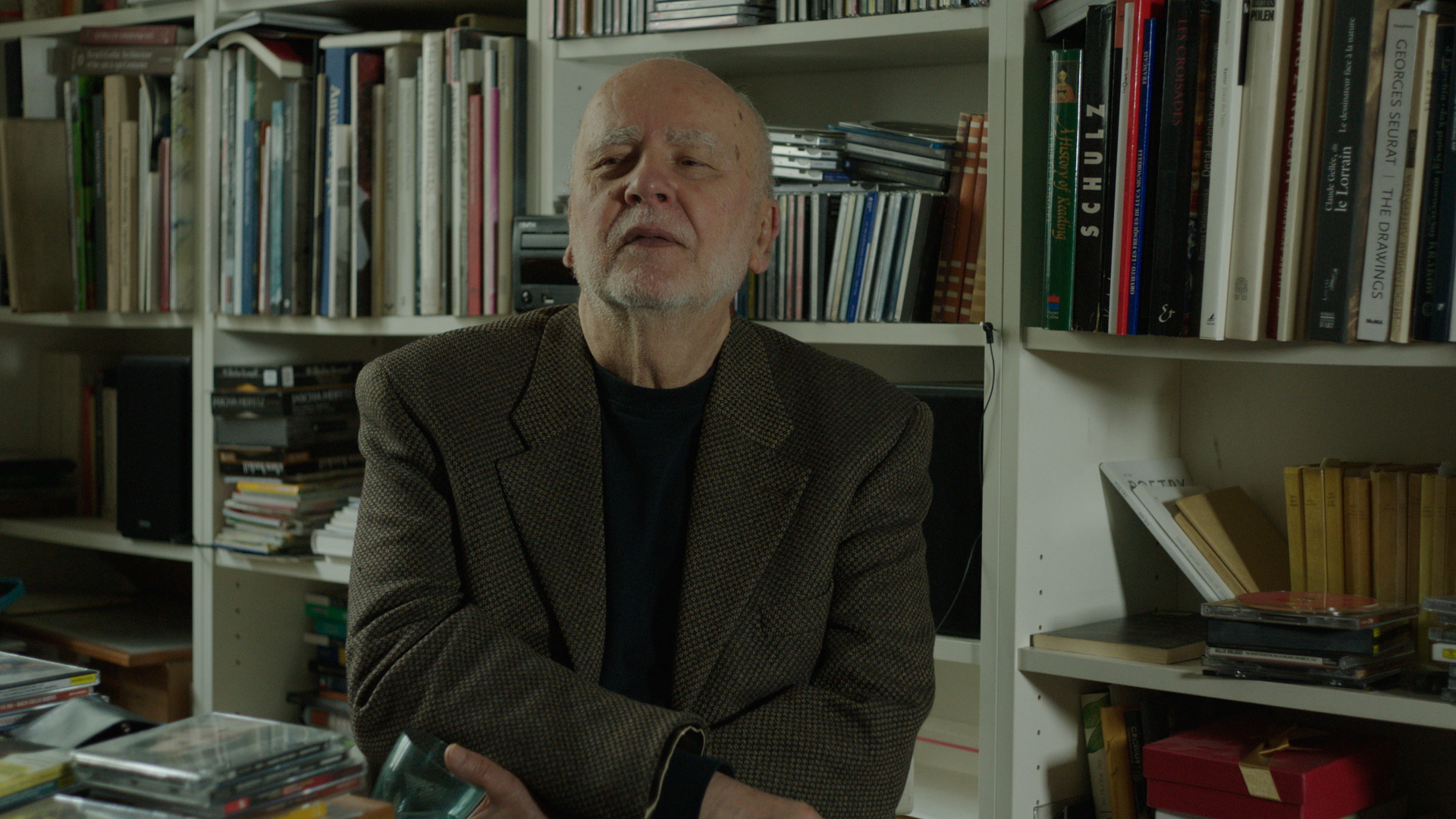NEXT STORY

Anti-Semitism raises its ugly head
RELATED STORIES

NEXT STORY

Anti-Semitism raises its ugly head
RELATED STORIES


|
Views | Duration | |
|---|---|---|---|
| 11. Tadeusz Różewicz | 52 | 03:40 | |
| 12. Family life prior to the outbreak of war | 50 | 03:10 | |
| 13. A humanities man through and through | 52 | 05:07 | |
| 14. Zbigniew Herbert makes a lasting impression | 59 | 03:18 | |
| 15. Goodbye to a career in engineering | 51 | 01:13 | |
| 16. Kraków – the city of my dreams | 58 | 05:02 | |
| 17. Family obligations follow me to Kraków | 48 | 03:38 | |
| 18. Living my dream | 53 | 01:40 | |
| 19. My Kraków idyll is interrupted | 47 | 03:38 | |
| 20. Playing my part in the protests | 44 | 03:00 |


No była seria manifstacji, kilka ich było. Ja uczestniczyłem w nich wszystkich, a jednocześnie zacząłem pisać ulotki. Miałem kolegę, z którym zaczęliśmy spiskować, ale bez kontaktu z żadnymi, bo właśnie znowu inaczej niż w Warszawie – to znaczy był w Krakowie jakiś komitet strajkowy, studencki. Ale nie miałem z nim żadnego kontaktu, a wiedziałem... nawet nie wiedziałem jak ich znaleźć, bo o dziwo nie było e-mailów ani niczego takiego, ani nikt nie miał telefonów i... ale miałem takiego kolegę Zbyszka, z którym usiedliśmy razem i napisaliśmy ulotkę do robotników, żeby się przyłączyli do nas, do studentów. Co było oczywiście naiwnością bardzo poważną, ale... I ja stukałem, miałem maszynę do pisania – to był taki pierwszy aparat literacki, to była maszyna do pisania, której nie mogłem sobie sam kupić, bo byłem biedny, ale ojca naciągnąłem. To był też wielki wyczyn, że... Dokładnie pamiętam, że niemiecka maszyna, nowa – Erika czy Eryka, mówiąc po polsku – kosztowała 4400 wtedy czyli dużo, bo ja chyba za 1500 złotych wszystkie koszty moje krakowskie pokrywałem. Tak czy inaczej miałem tę maszynę i w marcu ona mi posłużyła do tego, żeby wystukiwać ulotki, które wzywały, tak jak mówiłem, przez... przez kalkę, nie wiem, produkowałem po... po kilka kopii, po dwie ulotki na stronie A4, które potem przecinałem na pół i je z tym Zbyszkiem rozkładaliśmy – ulotki – w różnych miejscach, gdzie uważaliśmy robotnicy mogą je znaleźć czyli gdzieś w pobliżu jakichś lokali restauracyjnych najbardziej popularnych, najbardziej ludowych, w kabinach telefonicznych. A ten Zbyszek potem został dosyć znanym profesorem psychologii, Zbigniew Nęcki. I tyle – nigdy... potem to wszystko ucichło, skończyło się i nikt mnie nigdy o to nie pytał, nie przesłuchiwał, żadne macki UB do mnie wtedy nie dotarły. Tak że to przeszło, pozostawiło mi smak, no, goryczy.
There were several protest marches. I took part in all of them and at the same time, I began to write fliers. I had a friend and we started to conspire together, but we did this without contacting anyone else – things worked differently here than in Warsaw; in Kraków we had a student strike committee. I didn't have any contact with them. I didn't even know how to find them because, just imagine, there was no email nor anything of that sort, no one had a telephone, but I had a friend, Zbyszek, and we sat down together and wrote a flier addressed to workers telling them to come and join us, the students. Of course, this was the height of naivety, but I had a typewriter – this typewriter was my first literary device, which I couldn't afford to buy for myself because I was poor, but I'd wangled it out of my father. That, too, was a huge achievement, I remember very clearly that it was a new German typewriter – an Erika or Eryka in Polish – and at the time it cost 4400 so it was very expensive seeing how 1500 zloties was enough to cover all of my Kraków living expenses. In any case, I had this typewriter and it served well enough for me to type up fliers which called for, like I've already mentioned. I made carbon copies, I don't know how many I typed, several copies at a time, two fliers per one A4 page which I later cut in half, and then together with Zbyszek, we would leave them in various places where we thought the workers would find them so close to all of the most popular bars and cafés and in telephone kiosks. This friend Zbyszek later became quite a well-known professor of psychology, Zbigniew Nęcki. And that was it – after that, everything went quiet, it finished and no one ever asked me about it, there was no interrogation, the tentacles of the secret police didn't reach me then. So it all passed, leaving me with a bitter taste.
Adam Zagajewski (1945-2021) was a Polish poet, novelist, translator and essayist. He was awarded the 2004 Neustadt International Prize for Literature, the 2016 Griffin Poetry Prize Lifetime Recognition Award and the 2017 Princess of Asturias Award for Literature. He is considered as one of the leading poets of the Generation of '68 or the Polish New Wave (Polish: Nowa fala) and is one of Poland's most prominent contemporary poets.
Title: Playing my part in the protests
Listeners: Andrzej Wolski
Film director and documentary maker, Andrzej Wolski has made around 40 films since 1982 for French television, the BBC, TVP and other TV networks. He specializes in portraits and in historical films. Films that he has directed or written the screenplay for include Kultura, which he co-directed with Agnieszka Holland, and KOR which presents the history of the Worker’s Defence Committee as told by its members. Andrzej Wolski has received many awards for his work, including the UNESCO Grand Prix at the Festival du Film d’Art.
Tags: protest marches, leaflets, typewriter, workers
Duration: 3 minutes
Date story recorded: March 2018
Date story went live: 25 April 2019